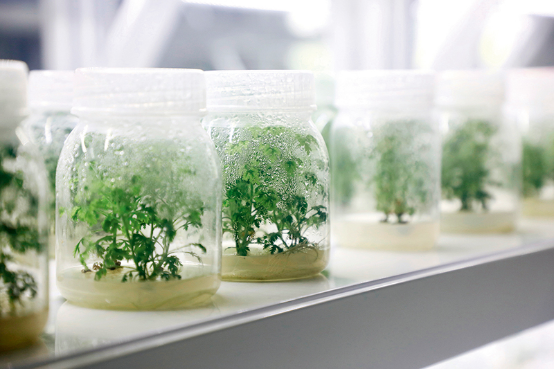China, Sweden Join Hands to Write a New Chapter in Health Cooperation

Cui Aimin, Chinese Ambassador to Sweden and 2024 Big Data Expo in China (Aug 28, 2024).
Source (Expo): Yang Qian from People's Daily
In 1992, Swedish expert Rolf Kjellstr?m arrived in China, becoming the first Elekta employee to set foot in the country. Thanks to the efforts of him and his colleagues, the first Gamma Knife in the Chinese mainland was installed at Huashan Hospital in Shanghai. Over the past 30 years, Huashan Hospital has treated more than 40,000 patients with the Gamma Knife. In total, Elekta's equipment has been used to treat over 300,000 patients across China, making the country one of Elekta's largest markets globally. In Beijing and Shanghai, Elekta has established its largest R&D and production base, as well as second-largest software R&D center globally. China's reliable, stable, and responsive supply chain plays a vital role in ensuring timely and effective treatment for cancer patients worldwide.

Elekta's exhibition booth at the fifth China International Import Expo, 2022. (Source: China Daily)
Elekta's successful collaboration with China epitomizes the cooperation between China and Sweden in the medical and healthcare sector. Sweden is a leading country in the world in biomedical research. With its historical accumulation and innovative capabilities, it stands at the forefront in areas such as medical technology, pharmaceutical R&D and public health management. China, as the world's largest developing country, has also achieved remarkable accomplishments in biotechnology and medical equipment manufacturing. The cooperation between the two countries in biomedicine transcends geographical and cultural boundaries, continually benefiting both peoples and setting a fine example of win-win cooperation.
An Enduring Friendship
Intergovernmental scientific and technological cooperation between China and Sweden began in December 1978 when China's Ministry of Science and Technology and Sweden's Ministry of Education and Research established the China-Sweden Joint Committee on Scientific and Technological Cooperation. This initiative has fostered dialogue, communication and research collaboration in areas of mutual interest to both sides such as green and low-carbon technologies, smart cities, and healthcare. Non-governmental institutions in China and Sweden have also forged deep bonds of friendship. Medical schools in the two countries have established extensive cooperation. Researchers from both sides have engaged in direct exchanges focusing on key medical issues, including inflammation, cancer, cardiovascular diseases, infections, and public health. They have successfully collaborated and agreed to establish joint laboratories, creating important platforms and opportunities for promoting industrial, academic and research cooperation and exchanges in the medical field between China and Sweden.
Over the decades, hundreds of Chinese students have earned their doctorates in Sweden and have become the backbone of China's medical and healthcare system. These alumni are now using the medical knowledge and advanced concepts they acquired in Sweden to continue to provide high-quality services to countless Chinese patients, and contribute to the realization of the Sustainable Development Goals.
Friendship in Times of Adversity
During the COVID-19 pandemic, Chinese and Swedish institutions jointly established a high-throughput COVID-19 testing laboratory. With the help of Chinese equipment and teams, the lab achieved a daily capacity of 10,000 nucleic acid tests with record-setting speed, helping the Swedish public health system strengthen comprehensive, multi-omics capabilities for monitoring viral mutations. The efforts have been widely acclaimed by public health and disease control personnel.
Research funding agencies of both countries co-funded interdisciplinary collaborative projects in coronavirus research, enabling Chinese and Swedish scientists to work together in the fight against COVID-19. Dozens of renowned scientists formed a joint COVID-19 research team, and published over 150 papers together, with some of their findings incorporated into China's national epidemic prevention and control protocols. After the pandemic, the scientific communities of both countries continued to deepen their cooperation and further conducted translational medical research in areas like microbiomics, with a focus on exploring the significant impact of the vast microbiome residing in human bodies on people's health. They also jointly participated in international research programs to study the complex interactions between microorganisms and human health. Their efforts aim for breakthroughs in key areas such as gastrointestinal health, cancer treatment, reproductive health, and neonatal care. This not only demonstrates the depth and breadth of China-Sweden cooperation in the biomedical field, but also heralds potential major scientific breakthroughs in global medical and healthcarefield.

Artemisia seedlings cultivated by Chinese enterprises for medicinal purposes. (Source: Cui Bowen from Xinhua News Agency)
Integration of Eastern and Western Wisdom
Both China and Sweden have their own unique characteristics and strengths in the medical and healthcare field. The integration of Eastern and Western wisdom will bring new vitality and hope for the sustainable development of the healthcare industry. The cooperation between the two countries in traditional Chinese medicine research is a strong example. Such collaboration began with the Nobel Prize-winning Chinese scientist Tu Youyou. Her research on artemisinin sparked Swedish experts' enthusiasm for exploring China's profound heritage of traditional medicine. Chinese scientists who accompanied Tu Youyouto Sweden for the Nobel Prize met with Swedish scientists there, and they were brought together by the common goal of promoting health for all humanity.
Currently, their collaborative research efforts focus on treating immune and infectious diseases. By leveraging China's clinical resources and centuries-old herbal medicine prescriptions, combing Sweden's cutting-edge molecular medical technology and incorporating the wisdomof traditional Chinese medicine, such as the concept that "superb doctors cure hidden diseases", the two sides are offering innovative approaches to disease prevention and epidemiological research. Miraculous Chinese herbs and decoction methods evolved over millennia are now showing renewed vigor and vitality in Swedish laboratories. The wisdom of traditional Chinese medicine and the modern technologies of Western medicine complement each otherand break new paths, bringing new hope for patients with autoimmune diseases worldwide.
More Highlights in Industrial Cooperation
The combination of Sweden's technological innovation with China's unique manufacturing ecosystem is driving the healthy development of the pharmaceutical industries of the two countries in a new direction for future cooperation. In October 2021, AstraZeneca R&D Chinawas officially launched in Shanghai, marking an important milestone in the company's global R&D strategy. New drug development involves oncology, respiratory and immune disorders, vaccines and infections, cardiovascular, renal and metabolic diseases, and rare diseases, covering the entire clinical R&D process from translational medicine to phase-III clinical trials. AstraZeneca has expanded from conducting confirmatory studies in China and supporting new drug launches to earlier stages of R&D. The company has begun to lead global R&D process in the area of high-incidence diseases.
Guided by the vision of "Focus on China, Serve the Globe", AstraZeneca has also introduced innovative health IoT solutions into Wuxi, and jointly built the Wuxi International Life Science Innovation Campus. The campus serves as an innovation and empowerment platformthat provides one-stop services for innovative companies in China and abroad, including support for project implementation, innovation incubation, business acceleration and scale expansion. It continuously explores smart medical solutionsand works to create a patient-centered innovative medical ecosystem.
Bright Prospects for Cooperation
Health is the eternal pursuitof humanity, and health promotion is a shared responsibility of the international community. International scientific and technological cooperation has become an important means for countries to accelerate scientific and technological progress together and build a community with a shared future for mankind.
China and Sweden have a long history of cooperation in the health field. Both are committed to improving health equity and accessibility, and both face similar challenges such as aging populations and the increasing burden of chronic diseases. China is currently advancing the Healthy China Initiative,where public health is regarded as a cornerstone for a moderately prosperous society. Meanwhile, Sweden's advanced technologies in biomedicine, medical devicesand telemedicine, its diagnosis and treatment systems, as well as its useful explorations in elderly careare providing important experiences for countries around the world, including China.
In the face of common global health challenges, the scientific and technological cooperation between China and Sweden in the health area will surely play an increasingly important role in promoting global high-quality development and will make new and greater contributions to the well-being of all humanity.







